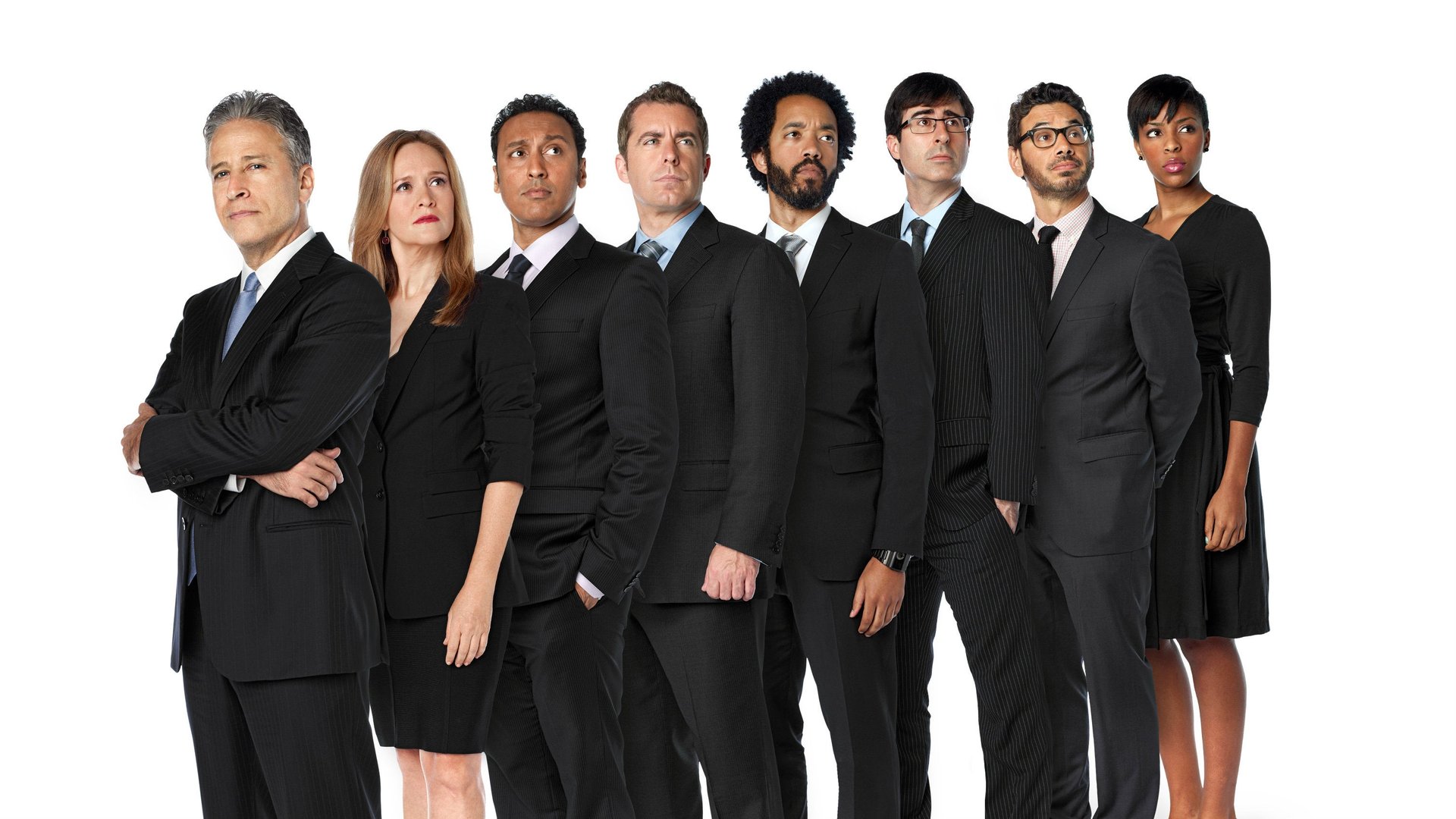Jon Stewart may be one of a kind, but “The Daily Show” is more than just one person
It’s hard to fathom that a broadcast network suspending its evening news anchor for six months without pay—as NBC just did with Brian Williams—could fail to qualify as the day’s biggest media story. Well, at least until yesterday, when NBC’s announcement was dwarfed by an even more shocking declaration: Jon Stewart will step down as host of The Daily Show with Jon Stewart when his contract is up later this year.


It’s hard to fathom that a broadcast network suspending its evening news anchor for six months without pay—as NBC just did with Brian Williams—could fail to qualify as the day’s biggest media story. Well, at least until yesterday, when NBC’s announcement was dwarfed by an even more shocking declaration: Jon Stewart will step down as host of The Daily Show with Jon Stewart when his contract is up later this year.
“This show doesn’t deserve an even slightly restless host, and neither do you,” Stewart, who has held the Daily Show job since 1999, told his audience on Tuesday. “I don’t have any specific plans. I have a lot of ideas. I have a lot of things in my head.”
The loss will be profound: Stewart has done more to revitalize and innovate late night than even David Letterman. His Daily Show announcement came closer to breaking the internet than any silly stunt Kim Kardashian has pulled, as stunned fans and members of the media lamented his retirement, and questioned whether The Daily Show could even continue on without him.
It can, it will—Comedy Central has confirmed that it will bring in a new host—and most importantly, it must. The Daily Show has grown into something much bigger than any one person, even Stewart, and after 16 years with him at the helm, it’s more than capable of thriving without him.
Especially because it has already done that—several times. Many have forgotten this, but when The Daily Show launched in July 1996, it was hosted not by Stewart but by Craig Kilborn. The former SportsCenter anchor snarked his way through the gig until the end of 1998, when he left to host The Late Late Show, a job at that one time seemed a likely destination for Stewart himself. Stewart took over in 1999, and it took more than a year of experimentation and growing pains (does anyone else remember his odd recurring Thursday segment, “Thersday for the Ladies”?) beforehe stumbled upon the DNA for the version of the Daily Show we all now know and love, starting with the “Indecision 2000” coverage of the Al Gore/George W. Bush Presidential election.
He went beyond satirizing the news, and managed to put politicians and news organizations, particularly cable news networks, under an essentially critical microscope, becoming in essence a comedic watchdog. Even the New York Times was calling him “the most trusted man in America.” But he has always had a funny group of correspondents at his side, ready to help with the heavy lifting: Stephen Colbert (who actually predated Stewart on The Daily Show), Steve Carell, Ed Helms, John Oliver and Larry Wilmore, among many others.
When Stewart first signed on, his initial plan was to keep making movies, the being that correspondents like Colbert would occasionally fill in for him during various film hiatuses. But as The Daily Show’s popularity and comedic impact grew —it won the Emmy for outstanding variety, music or comedy series an astounding ten years in a row—he wisely pulled back from acting, and as a result the idea of anyone else occupying in the anchor chair eventually seemed unfathomable.
But inevitably after so long in the job, Stewart began growing restless, and when he decided to take the summer of 2013 off to direct Rosewater, Daily Show fans were wary of how his fill-in, Oliver, would fare. Well, those fears subsided by the first episode. Oliver didn’t just keep Stewart’s seat warm: he lit it on fire, with dozens of memorable moments. Suddenly, the prospect of a Stewart-less Daily Show didn’t seem so scary.
Oliver would be have been the obvious choice to replace Stewart, but he’s now at HBO with his own successful late-night series. Still, Comedy Central has no shortage of worthy candidates to step in for him.
My nominees: married Daily Show correspondents Jason Jones and Samantha Bee as co-hosts. If they opt to pick someone outside the Daily Show family, I hope they finally give Aisha Tyler the late-night spot that should have been hers when the CBS12:30 slot opened up last year.
Whenever Stewart does step down later this year—he said his departure could be as early as July or as late as December—it will be a huge loss for Comedy Central (which also just lost Colbert to CBS, where he’ll replace Letterman on The Late Show in September), and for viewers. He’ll be a hard act to follow, but as Oliver proved in 2013, someone will indeed follow him, and they’ll likely do the job brilliantly.